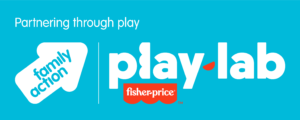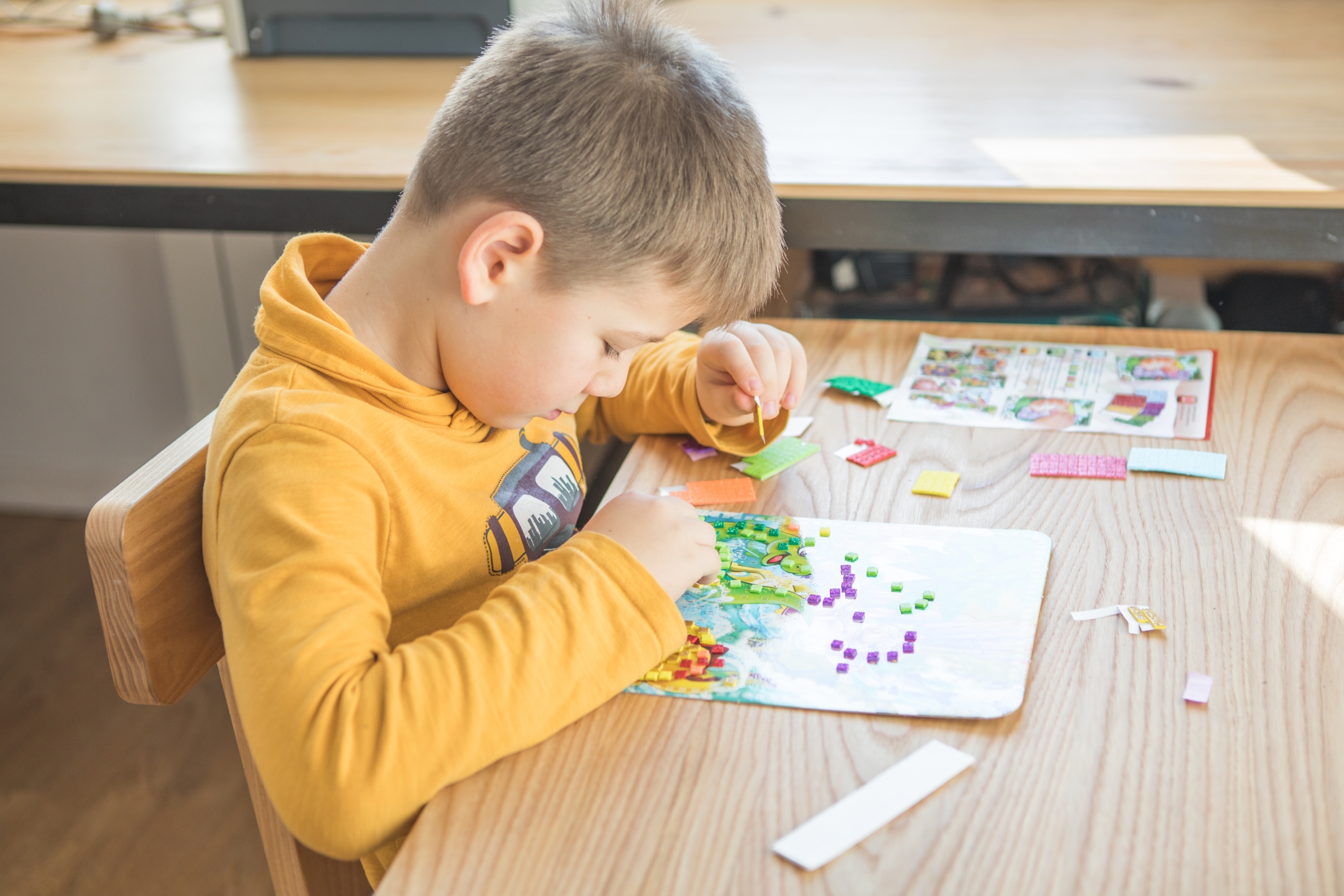We introduce our Play Programme and explain why play is a powerful tool for promoting wellbeing, learning and family togetherness.

Our Play Programme has been designed to make play easier for families regardless of who they are.
We’ve taken time to address all the barriers which the modern world can present that prevent our children and ourselves from playing by ensuring the activities are cheap and easy to understand, and we’ve devoted modules to help you find the time and the mindset to engage.
We believe that we’re uniquely placed to do so.
So, why the focus on play? If there’s one thing staff in our Early Years services are guaranteed to take seriously it’s play. Our staff know it’s essential to the development of healthy, happy children and, consequently, adults.
And, from their experience working with the whole family, they know that play doesn’t just help with children’s development – it’s also beneficial for family bonding and wellbeing.
That’s why for us playtime isn’t a reward: it’s an end in itself.
Our Early Years Manager Karen puts it best when she says: “You can’t underestimate the power of play… but that power is only unlocked when we don’t try to turn play into work and instead recognise children’s instinctive curiosity and playfulness”.
“You can’t underestimate the power of play… but that power is only unlocked when we don’t try to turn play into work and instead recognise children’s instinctive curiosity and playfulness”. Early Years Manager, Karen
Research we undertook with our partners Fisher–Price™ Play Lab in March told us that parents of under-fives are concerned about the impact of the pandemic on their children’s development and attachment, with their biggest worries relating to their social skills, language, motor skills and numeracy. Further discussions with parents and staff since then have also highlighted that parents are concerned about the effect of the cost of living crisis on their family’s wellbeing.
We share the belief that supporting families to play more together is part of the solution, allowing for the development of children’s “formal” skills such as maths and literacy, as well as promoting softer skills like spatial awareness and social skills that are essential for helping children grow more independent and form positive relationships. Play, from the earliest age, can help with getting to know your little one’s personality and allows us all to feel more satisfied with life.
The wide benefits of play for children and families
By allowing children to invent situations that enable them to experience difficult emotions such as fear, sadness, anger and disgust, play also gives
children the opportunity to explore reactions and consequences – so those poo jokes they keep making are fine, honestly! Play also develops children’s curiosity, creativity, and confidence and it strengthens their bodies, minds and resilience – setting them up to thrive. Even the smallest things, like making silly faces and blowing raspberries with babies make a difference – for babies especially, it’s the time spent together that counts.
That’s why our play programme shares insight and evidence from our child development experts regarding how play can support key child development milestones for children under five, support family bonding and benefit adults’ and children’s wellbeing.
As you can see the topic of play is a complex one, and it can feel difficult to know where to start when supporting our children to get the most from it.
Play doesn’t need any special equipment, and our Early Years services, such as pre-schools and parent and toddler groups, use everyday, low cost and, ideally, natural items – something we cover in our range of play activities designed for families on a budget.
It’s important to make time for outdoor play, but we know from the government’s COVID statistics that one in eight households have no access to private or shared gardens.
Thankfully this too is not required… a local park or even communal street space is a more than adequate playground for our children.
The important role we can play as parents and carers
As parents and professionals we also need to know when to step back and let the experts – the children themselves – take charge. We believe play should be child-led, but also know that parents, carers and extended family members play an important role in a child’s playtime, especially for babies. Helping to enable self-led play and gentle, responsive interaction while a child plays can be hugely beneficial to their development and overall wellbeing. However, parents and carers have told us that they can find it a challenge to play with their children – whether that is due to a lack of time, know-how, motivation or pressure to ‘get it right’.
We appreciate the pressures on families and are here to help, with our Play Programme sharing guidance from our child development experts on how to create engaging play spaces, fun, simple, low-cost activities that the whole family can enjoy (including the adults, we promise!) and the small actions you can take to help your child get the most from it. We’re aware that all children (and the adults they are playing with!) are different, and some may have specific needs that aren’t directly addressed in this Programme. However, if you amend them to suit your family, many of the suggested activities we have included will still be helpful.
Finally, it’s worth understanding that, as much as we trumpet the value of play for learning and development and family bonding it has an even greater function – that of creating happiness. In our experience, we know that happy children learn more because they are eager to spend time at pre-school with their friends and staff. But it’s not just about learning as, if we’re honest, what most of us would want for the children we work with, and our own children, is for them to have happy, fulfilled lives.
Play gives us the tools to do so and can help both adults and children escape from the uncertain and unsettling times we are living through. Our ambition is for the whole family to be able to enjoy play and the benefits it brings together. Our Play Programme will help you strengthen the relationship with your child and create moments of family fun to remember forever.
This article is part of our Play Programme, which shares early years expertise, practical tips and simple activities for families looking for quick and easy ideas to build play into the everyday and help their children thrive.
We appreciate, however, that it might feel hard to feel playful or find time to play when we feel worried, anxious or stressed. If you’re struggling with any aspect of family life, or just need a sympathetic ear, you can contact our FamilyLine service for free emotional support and guidance.








